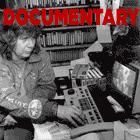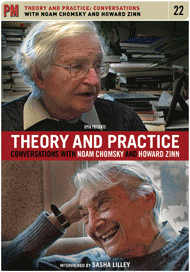Neither scientifically proven or impossible
In the last 24 hours, our last post generated some discussion from interesting corners, so we thought we'd add a few extra notes. First, a few years ago, I remember reading an interview with one of the founders of 2600, the hacker magazine, on CNN. He was asked some preposterous question or another about what evils hackers could do and his reply stuck with me:
There is a similar phenomenon with the word activist and the concept of activism. This has been written about before, but it bears repeating. We're caught up in the scene and signifiers of activism, but we're not actually contesting power. And this doesn't just extend to the individual, but also to a number of these big anti-war groups. Yet it's not over just because we've lost our way. And just because groups and people identify as antiwar, it doesn't mean that they are doing anything to really stop the war and especially does not mean that they should be looked at as indicators for how the antiwar movement is doing.
This isn't intended to sound like a "group A is a real anti-war group and group B is a traitor/enemy/whatever." This is a case of good people with good intentions trying to figure out how to end the war.
And here's where we go off the idealistic deep end. We can end the war period full stop. Social agency is a wonderful thing and as long as we're not combating nature itself (c.f. AIDS, volcanoes, lightning, impending mortality), We've done more than we thought possible (often not as well as we'd like) when it was still in future tense: ending slavery, overthrowing the empires, ending civil death for women, getting children out of the factory, et cetera. Now, I'm sure there's a little whiner in most of the people reading this who'll quickly point out that the slaves just became sharecroppers and leased convicts, the empires went through a revolving door into neo-colonialism, the patriarchy is still alive and well, and that there are millions upon millions of child laborers all around the world today because of this wretched mess we're in.
True. But we've still gotten a lot done that was thought impossible at the time and we're just not finished yet. At a Chris Day talk I saw years ago, he asked everyone to recite "I am the products of 500 years of resistance." We are the products of five hundred years of resistance and it isn't over and it probably won't be over for a little while (I'm thinking early February, but maybe March?). This is important. And we need to remind ourselves of this when we start saying things like "Maybe we need to seriously consider the possibility that, as of our current place in history right now, it's simply not possible for anti-war activist organizations to end this war." and "it is impossible at this point in history to stop these wars." Maybe, if we want to be specific, it IS impossible for "anti-war activist organizations" as they are currently conceived to stop the war, but nothing that is made by people cannot be stopped by people.
So, to sum up, we shouldn't conflate the possibilities of stopping the war with the results from today's antiwar groups and strategies and saying that we can't stop the war is a cop out. Just as disorganized as yesterday's post, but that's what you get when you write at midnight.
CNN: What percentage would you say are destructive as opposed to those in it out of intellectual curiosity or to test their skills?
Goldstein: This raises several points that I feel strongly about. For one thing, hacking is the only field where the media believes anyone who says they're a hacker. Would you believe someone who said they were a cop? Or a doctor? Or an airline pilot? Odds are they'd have to prove their ability at some point or say something that obviously makes some degree of sense. But you can walk up to any reporter and say you're a hacker and they will write a story about you telling the world that you're exactly what you say you are without any real proof.
So every time a movie like "Hackers" comes out, 10 million people from AOL send us e-mail saying they want to be hackers, too, and suddenly, every 12-year-old with this sentiment instantly becomes a hacker in the eyes of the media and hence, the rest of society. You don't become a hacker by snapping your fingers...
...The main problem is that when you make up such a word, no further definition is required. When you label someone with a word that says they're evil, you never really find out what the evil was to begin with. Murderer, that's easy. Burglar, embezzler, rapist, kidnapper, all pretty clear. Now along comes cracker and you don't even know what the crime was. It could be crashing every computer system in Botswana. Or it could be copying a single file. We need to avoid the labeling and start looking at what we're actually talking about. But at the same time, we have to remember that you don't become a hacker simply because you say you are.
There is a similar phenomenon with the word activist and the concept of activism. This has been written about before, but it bears repeating. We're caught up in the scene and signifiers of activism, but we're not actually contesting power. And this doesn't just extend to the individual, but also to a number of these big anti-war groups. Yet it's not over just because we've lost our way. And just because groups and people identify as antiwar, it doesn't mean that they are doing anything to really stop the war and especially does not mean that they should be looked at as indicators for how the antiwar movement is doing.
This isn't intended to sound like a "group A is a real anti-war group and group B is a traitor/enemy/whatever." This is a case of good people with good intentions trying to figure out how to end the war.
And here's where we go off the idealistic deep end. We can end the war period full stop. Social agency is a wonderful thing and as long as we're not combating nature itself (c.f. AIDS, volcanoes, lightning, impending mortality), We've done more than we thought possible (often not as well as we'd like) when it was still in future tense: ending slavery, overthrowing the empires, ending civil death for women, getting children out of the factory, et cetera. Now, I'm sure there's a little whiner in most of the people reading this who'll quickly point out that the slaves just became sharecroppers and leased convicts, the empires went through a revolving door into neo-colonialism, the patriarchy is still alive and well, and that there are millions upon millions of child laborers all around the world today because of this wretched mess we're in.
True. But we've still gotten a lot done that was thought impossible at the time and we're just not finished yet. At a Chris Day talk I saw years ago, he asked everyone to recite "I am the products of 500 years of resistance." We are the products of five hundred years of resistance and it isn't over and it probably won't be over for a little while (I'm thinking early February, but maybe March?). This is important. And we need to remind ourselves of this when we start saying things like "Maybe we need to seriously consider the possibility that, as of our current place in history right now, it's simply not possible for anti-war activist organizations to end this war." and "it is impossible at this point in history to stop these wars." Maybe, if we want to be specific, it IS impossible for "anti-war activist organizations" as they are currently conceived to stop the war, but nothing that is made by people cannot be stopped by people.
So, to sum up, we shouldn't conflate the possibilities of stopping the war with the results from today's antiwar groups and strategies and saying that we can't stop the war is a cop out. Just as disorganized as yesterday's post, but that's what you get when you write at midnight.





1 Comments:
". . . along comes cracker and you don't even know what the crime was. . . ."
Hacker strikes again?
Curious post, though. I challenged your previous post to go beyond a rather negative critique of business-as-usual protests and instead offer some specific, positive solutions (or at least a general direction in which to move), and you respond with a discussion of the semantics of the terms "hacker" and "activist", which somehow leads to "saying that we can't stop the war is a cop out"?
Maybe your comments are more aptly directed towards Mr. Ford's post, but since you quoted a small portion of what I wrote, then perhaps I should clarify.
When you write that, "if we want to be specific, it IS impossible for "anti-war activist organizations" as they are currently conceived to stop the war," you reiterate my intended point exactly. Maybe I wasn't clear enough, but my feeling is that these large, centralized anti-war groups, as exemplified in your previous post, are ineffective because they have learned nothing from the other contemporary movements.
Their failure is that they reproduce and reaffirm the structure of U.S. state power by acting only within its prescribed avenues for legitimized political participation (e.g., voting and cop-escorted protests). The result is that UFPJ marches and the like are essentially weak, institutionalized forms of lobbying the government. This leaves the cycle of war and more war completely intact, because it acts as a tacit endorsement of the political structure that makes unending war possible.
This is not to say that it will always be this way, or that it is impossible to ever end war, but that the mass anti-war movement, as it currently stands, will continue to fail as long as it lobbies the warmongers instead of attacking the war-enabling political structure more directly. I offered the new SDS as a sign of hope because I think they are motivated both by anti-war sentiment and the organizing methods of the anarcho-inspired anti-capitalist movement. But the problem continues to be that the various movements on the left still have much to learn from each other if they are to ever join forces in creating a movement powerful enough to end war.
Post a Comment
<< Home